ASTANA – Kazakhstan has deployed its first independent peacekeeping contingent to the Golan Heights under the United Nations (UN). Upon reaching the Syrian capital on March 15 the convoy, escorted by a UN special unit and Syrian police, proceeded to Camp Faouar, the UN Disengagement Observer Force (UNDOF) headquarters, according to the Kazakh Defense Ministry.
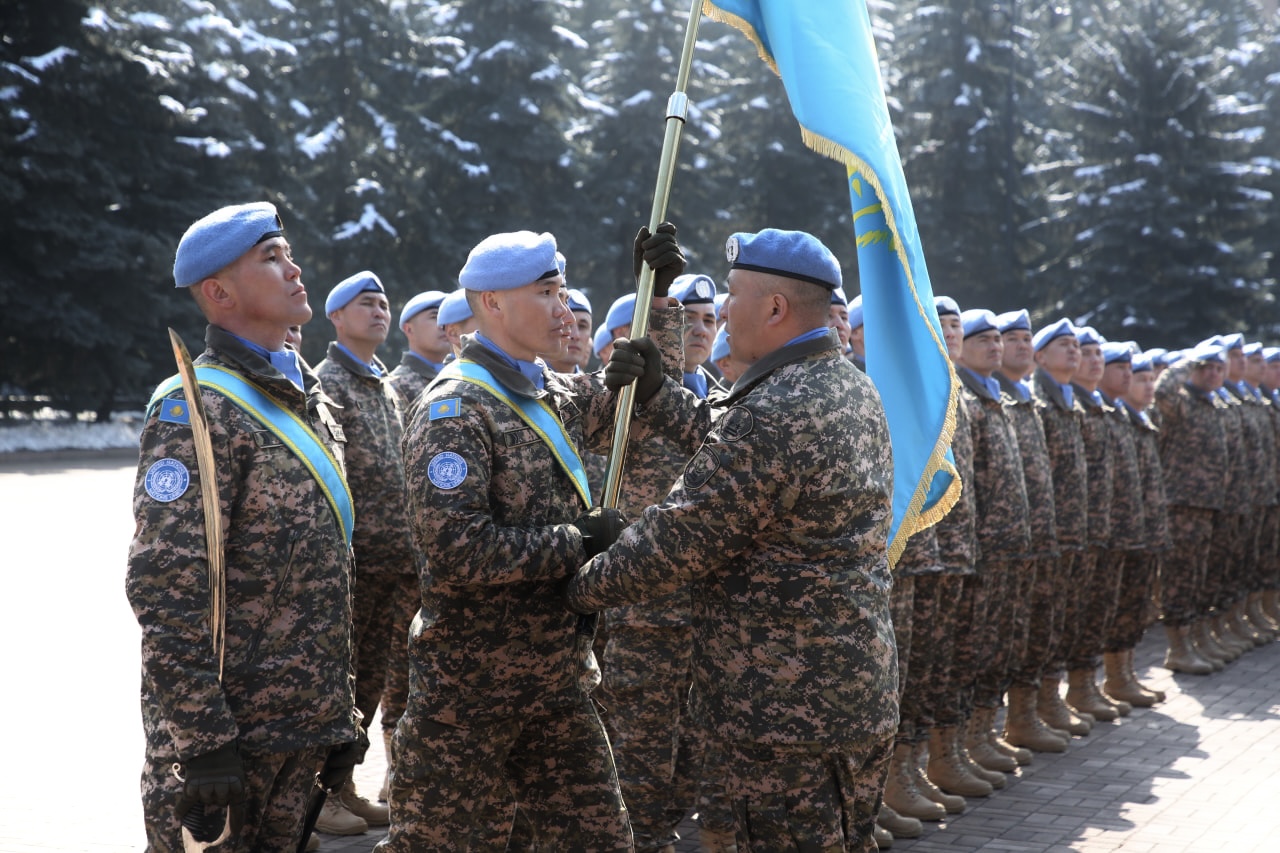
The peacekeeping contingent. Photo credit: KAZCENT press service.
“This is an immense honor for us. In a brief span, we have diligently trained and equipped a peacekeeping contingent that adheres to all international standards and demands. They stand poised to execute missions amid the complexities of the military-political landscape,” said Kazakh Defense Minister Ruslan Zhaksylykov during the send-off ceremony of the peacekeeping contingent in the Park of the 28 Panfilov Guardsmen in Almaty on March 14.
“At the same time, it also entails significant responsibility towards our nation and the global community. Hence, it is imperative for us to showcase a superior level of readiness discipline and uphold the reputation of the Republic of Kazakhstan and its Armed Forces on the international stage,” he added.
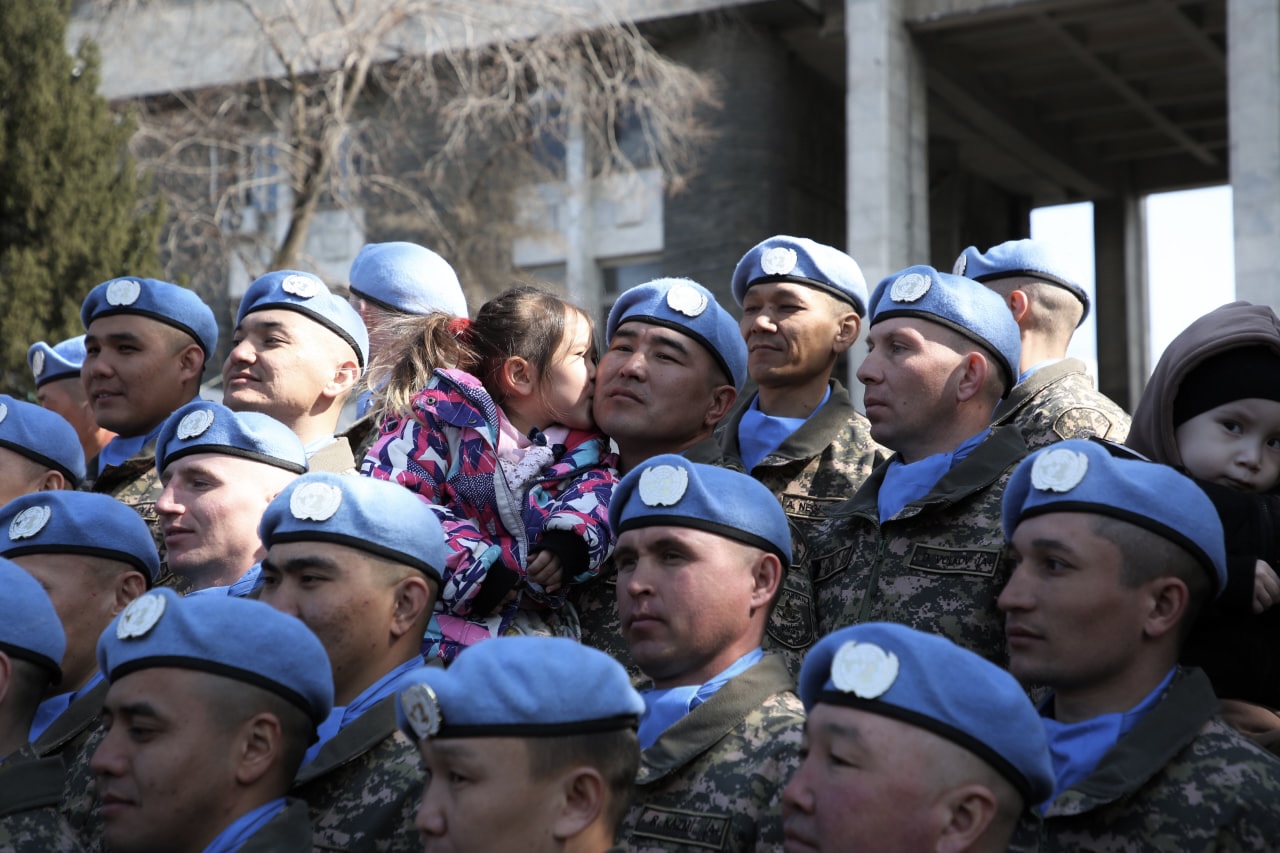
The send-off ceremony in Almaty on March 14. Photo credit: KAZCENT press service.
The contingent of 139 military personnel arrived in Damascus from Almaty with a refueling stop in Aktau. The frontier group, responsible for supporting logistical transportation, left first for the Golan Heights on Feb. 22.
Tasked with maintaining the ceasefire between Israel and Syria in the wake of the 1973 Yom Kippur War, the UNDOF has been performing its mandate since 1974. The mission of over 1,000 military personnel from 12 countries is to monitor the cessation of hostilities, supervise the disengagement of the forces, and uphold a buffer zone between the two sides.
The uniqueness of the mission
This is a historic moment for Kazakhstan, as it marks the first time the country has been mandated by the UN to deploy and undertake a peacekeeping mission independently. In a February interview with The Astana Times, Colonel Bauyrzhan Nigmetullin, head of KAZCENT national state institution under the Kazakh Defense Ministry, emphasized Kazakhstan’s steadfast commitment to promoting peace.
Unlike in previous cases, the Kazakh military personnel were sent to the Golan Heights with their own equipment and weapons as a reserve company to the UNDOF under the flag of Kazakhstan.
The mission is provided with modern equipment in accordance with UN standards.
The contingent has armored wheeled vehicles equipped with combat modules and the necessary life support equipment. Kazakhstan’s arsenal comprises KAMAZ trucks, high-traffic vehicles, and engineering equipment. One of the vehicles, converted for the evacuation of the wounded, is equipped with an oxygen apparatus, a defibrillator, medicines, and other medical equipment.
In 2018, the Armed Forces of Kazakhstan dispatched a peacekeeping contingent as part of the UN Interim Force in Lebanon under the command of the peacekeeping battalion of the Indian Armed Forces.
For this mission, the Kazakh contingent underwent a six-month training carried out by the KAZCENT in accordance with the UN rules and requirements for integration and interoperability in multinational peacekeeping operations.
According to the center’s press service, the visit of the UN delegation in December last year for the assessment of the Kazakh military personnel’s readiness was a “pivotal moment.”
International experts commended the high level of preparedness of the peacekeeping contingent and the professionalism of the instructional staff. They also evaluated material and technical resources for participation in peacekeeping operations.
For every month of service, military personnel will receive remuneration equivalent to three months’ salary. Additionally, the UN will provide monthly maintenance payments totaling $1,448.
The compensation for the death of a service person on duty amounts to 60 monthly salaries, with the UN providing a rate of $77,000 for death and disability compensation.
Military training
“From April to September last year, 250 military personnel underwent a comprehensive program at the Bitimger training ground [the site is located in the Almaty Region]. It consisted of three months of combat preparation and three months of peacekeeping training,” reads the KAZCENT’s statement.
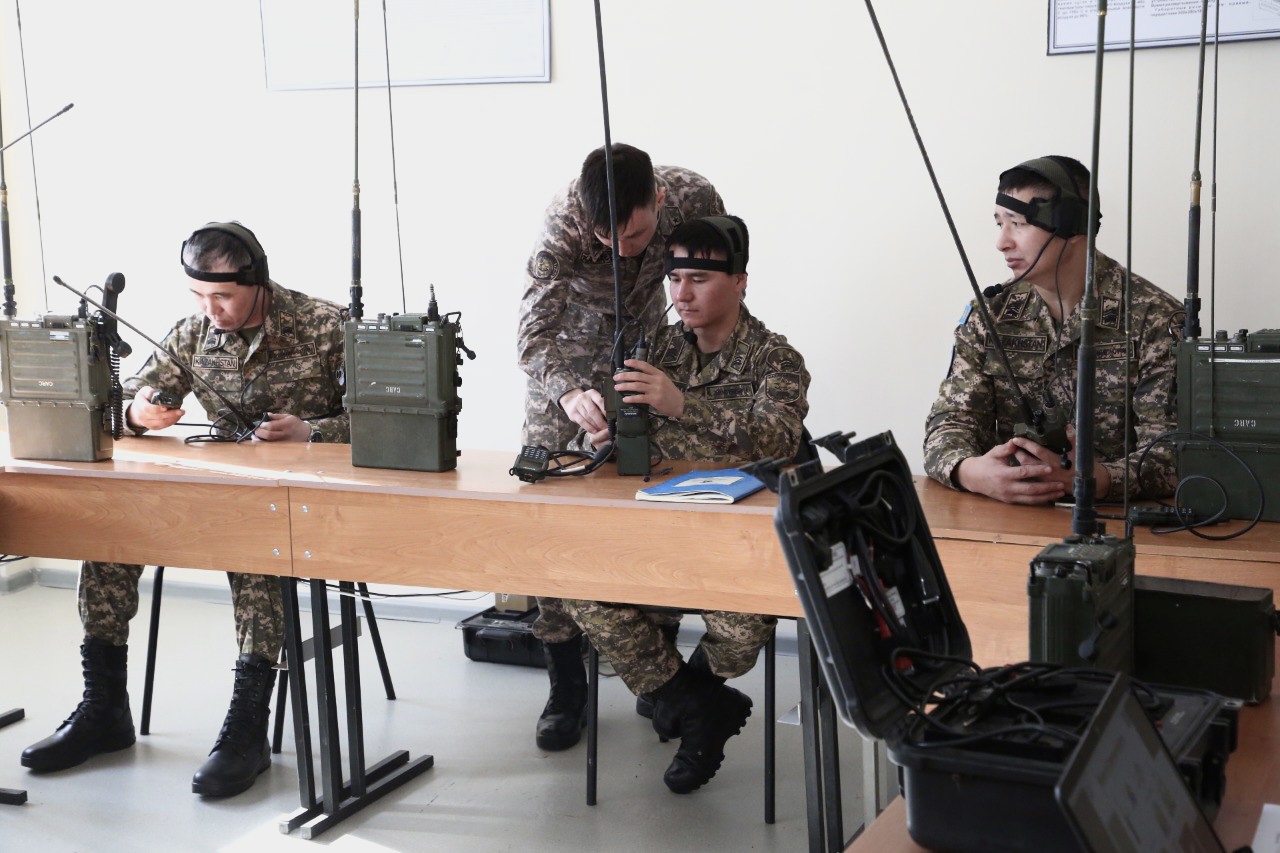
Engineering training included the detection and neutralization of explosive devices. Photo credit: KAZCENT press service.
Apart from KAZCENT instructors, representatives from demining and military medicine centers under the Armed Forces of Kazakhstan also participated in the training.
The training encompassed a set of disciplines, theoretical knowledge, and practical exercises in peacekeeping activities, health care delivery, protection of civilians, and engineering. The military personnel had intensive English-language classes and studied the peculiarities of local culture and traditions.
In November 2022, based on UN guidelines, Zhaksylykov approved the rules for selecting armed forces personnel for peacekeeping missions.
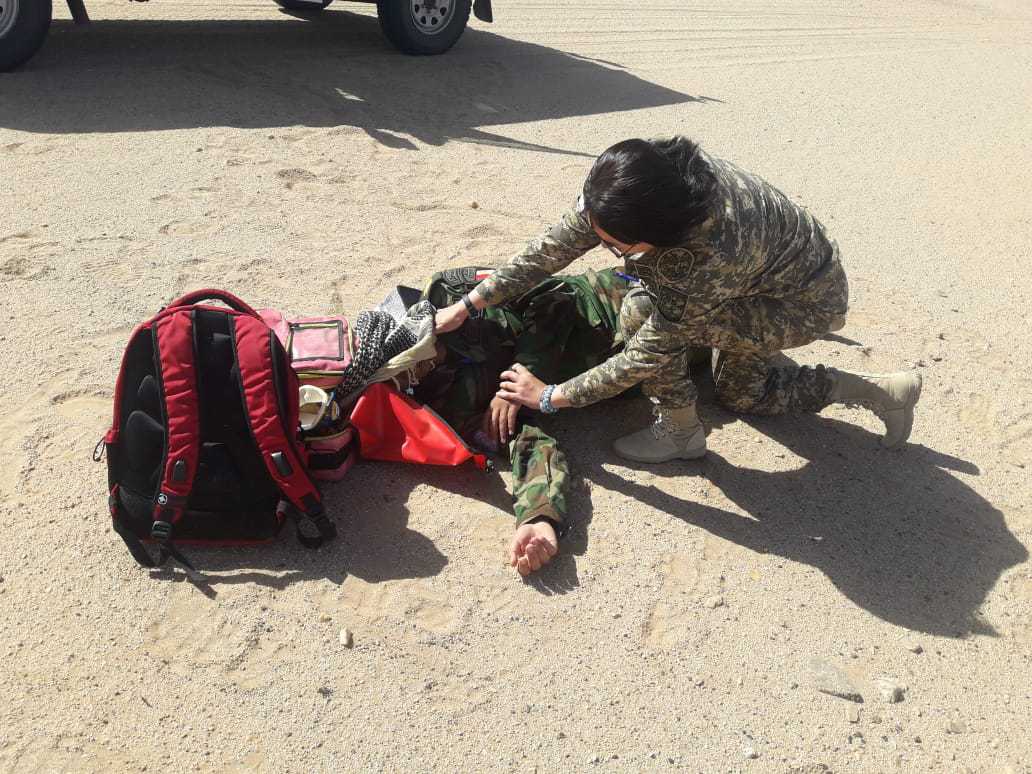
Medical training. Photo credit: KAZCENT press service.
The members of the national contingent must have a minimum of three years of service in the Armed Forces of Kazakhstan. The age range of the peacekeepers spans from 21 to 50 years. It is imperative for them to pass the Standardization Agreement (STANAG) test to confirm a specialized level of English language proficiency in military terminology and the International English Language Testing System (IELTS).
Kazakh female peacekeepers
The gender dimension in peacekeeping operations is gaining greater attention as the understanding of its impact on conflicts and post-conflict scenarios becomes more profound. In that sense, the implementation of gender policies in peacekeeping efforts facilitates the formation of a resilient society in the post-conflict period.
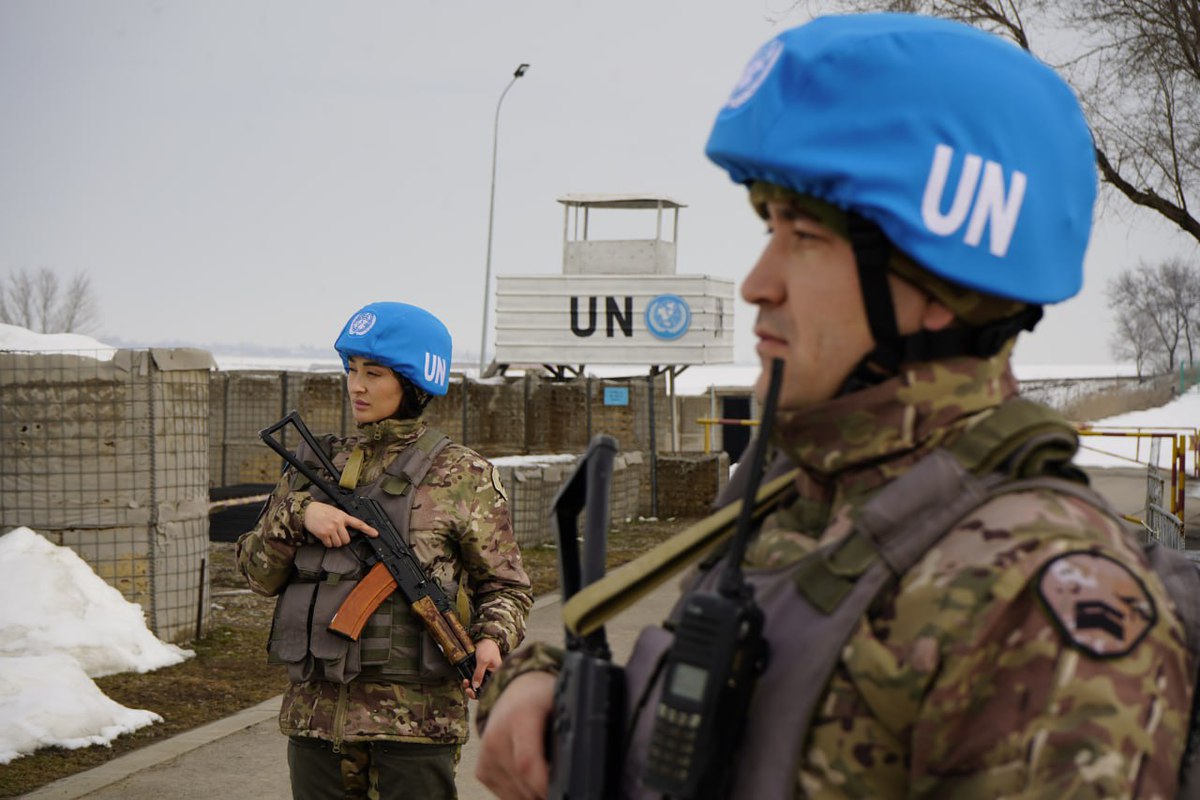
The capacity-building in peacekeeping activities includes the increase of women participation. Photo credit: KAZCENT press service.
Adopted in 2000, the UN Security Council Resolution on Women’s Peace and Security (WPS), also known as SCR 1325, is structured around four pillars. It highlights the critical role of women in conflict prevention, peacemaking, and peacebuilding.The landmark resolution acknowledges the differential impact of armed conflicts on women and stresses the need for their involvement in peacebuilding efforts.
To enhance women’s participation in peacekeeping activities, KAZCENT instructors have developed two courses on gender aspects in UN peacekeeping operations and gender advisor training. Aimed at raising awareness, the measures align with Kazakhstan’s social agenda, advocating for the need to prevent and combat gender-based violence in all domains.
Notably, female peacekeepers ensure effective interaction with women in local communities, gaining a better understanding of the problems and needs, especially in situations where men are prohibited from communicating with women given cultural and traditional features.
Seven female service officers left as part of the peacekeeping contingent for the UN mission in the Golan Heights. Along with male military personnel, a group of four medics, two cooks, and one sniper has undergone comprehensive peacekeeping six-month training.
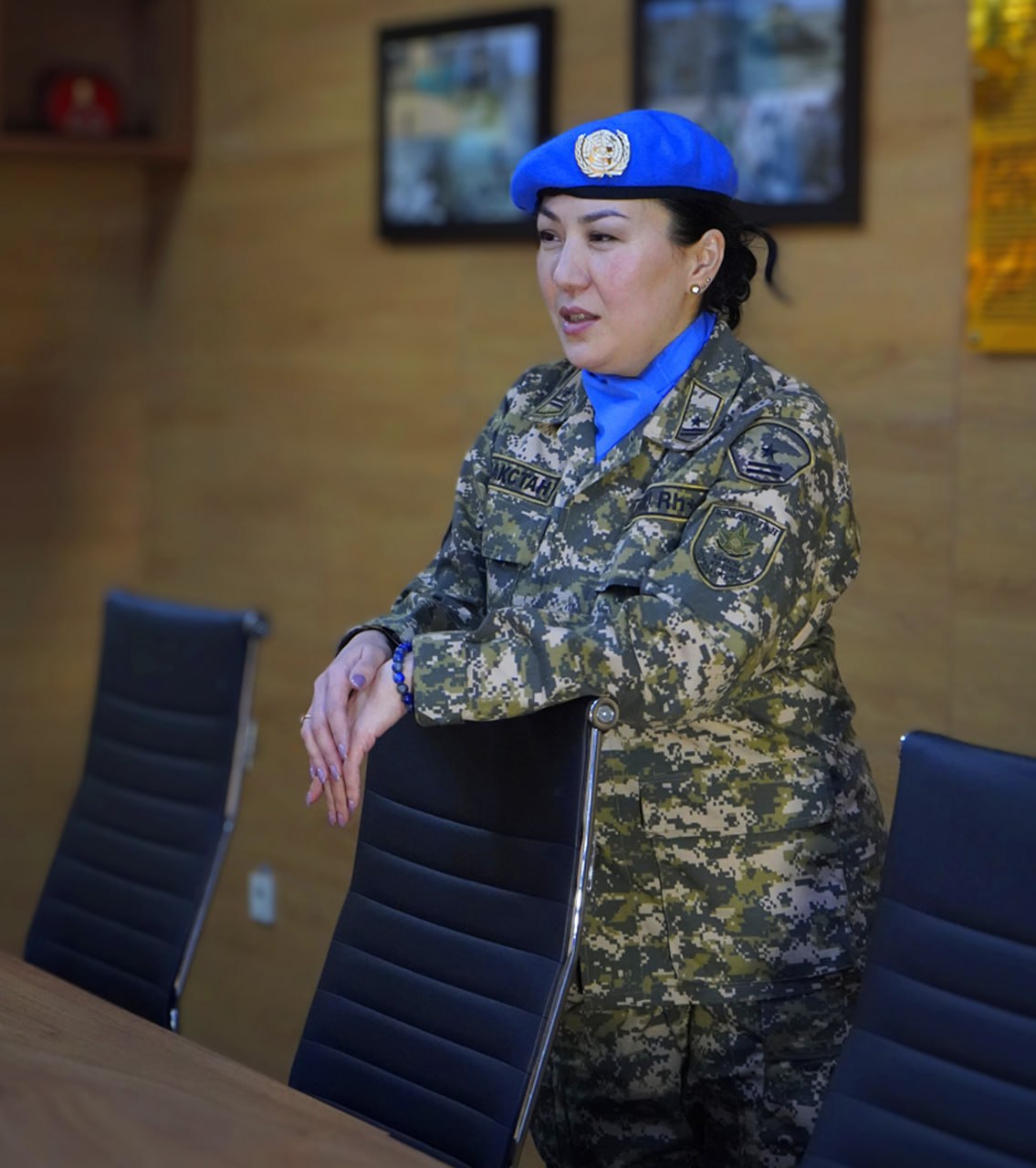
Major Rimma Shakeyeva. Photo credit: KAZCENT press service.
Sergeant Ardak Kurtibayeva from the medical service will bring her 10 year experience to the peacekeeping mission in the Golan Heights.
In 2020, as part of the special medical detachment sent by Kazakhstan as humanitarian aid, Kurtibayeva provided assistance to victims of the explosion at the Port of Beirut in Lebanon. Every day, doctors were performing surgeries on patients admitted with fractures, bruises, and lacerations.
Kurtibayeva also served as a surgical nurse at the field hospital to treat the wounded soldiers in the aftermath of an explosion at an ammunition depot in the Kazakh city of Arys in the Turkistan Region.
KAZCENT instructors, including female specialists, regularly exchange experiences and revise training materials during workshops organized by international peacekeeping training centers.
Last year, Major Rimma Shakeyeva, a senior officer and instructor at KAZCENT, participated in the UN Police educational program in the Netherlands School for Peacekeeping Operations (SPO) in Harskamp for military and civilian personnel under the Netherlands Ministry of Defence.
In the last two decades, more than 900 Kazakh military personnel have been involved in eight UN peacekeeping missions spanning countries across Asia, the Middle East, and Africa.
In the long term, Kazakhstan plans to deploy 430 peacekeepers to the UN missions. Apart from the UNDOF in the Golan Heights, they will participate in the UN Truce Supervision Organization (UNTSO, Palestine-Israel), the UN Mission in South Sudan (UNMISS), and the UN Interim Security Force for Abyei (UNISFA, Sudan).

